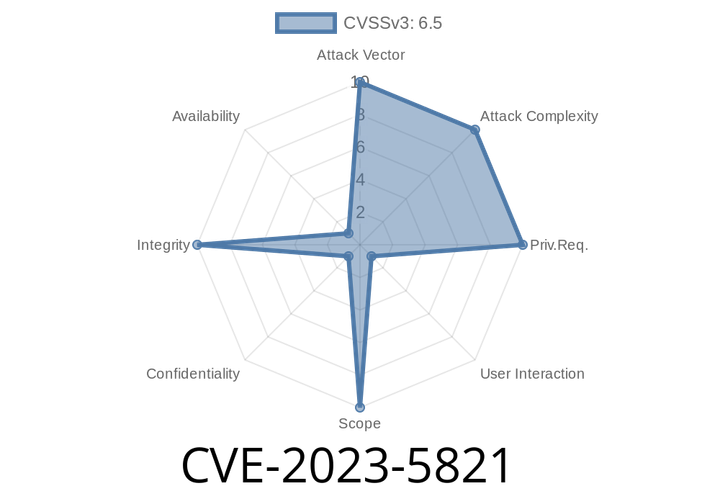CVE-2023-46779 - Cross-Site Request Forgery (CSRF) in EasyRecipe WordPress Plugin – A Deep Dive
---
WordPress is popular because it’s easy and flexible. But its plugins often have security problems. One such issue is CVE-2023-46779, a Cross-Site Request
CVE-2023-5945 - Exploiting CSRF in the Video Carousel Slider with Lightbox WordPress Plugin (V1.)
In December 2023, a vulnerability tagged as CVE-2023-5945 was discovered in the popular WordPress plugin "Video Carousel Slider with Lightbox" (v1.). This flaw
CVE-2023-5821 - How a Missing Nonce in Thumbnail Carousel Slider for WordPress Can Let Attackers Wipe Out Your Sliders
WordPress powers a huge chunk of the web, and plugins make it incredibly flexible. But with great power comes great responsibility—especially for plugin developers.
CVE-2023-5802 - How a Simple CSRF Bug Risked WordPress Sites via WP Knowledgebase Plugin
If you run a WordPress website and use the *WP Knowledgebase* plugin by Mihai Iova, you might have heard about a recent security issue reported
CVE-2023-5414 - How Icegram Express Directory Traversal Lets WordPress Admins Read Sensitive Files (with Exploit Example)
---
If you run a WordPress site and use the Icegram Express plugin, you should know about a nasty security issue: CVE-2023-5414. This bug lets
Episode
00:00:00
00:00:00




